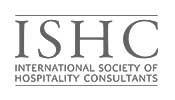Sustainable investment and ROI: What all hoteliers should know | By Kit Cassingham, ISHC
Making use of basic business principles is smart business, and sustainable development relies on basic business principles. Furthermore, sustainable development requires communication of your intentions and attitudes, actions, successes and failures.
Herve Houdre, former general manager of the Willard InterContinental Washington, D.C., said in the opening paragraph of the 2008 Willard Sustainability Report, "Contrary to popular belief, an SD [Sustainable Development] strategy keeps us on the right path of revenue development and expense control. Those who take the current crisis as an excuse to not act or to withhold their efforts, are missing an enormous opportunity to differentiate their business and to be closer to their customers, their employees and the world we shape for future generations."
While my consulting focus is primarily on bed and breakfasts, I have worked and interacted with enough hoteliers in North America to know hotel properties of all sizes benefit from focusing their operations on sustainability. I see properties around the world adopting sustainable development strategies.
It's important to not get so caught up in making money for your investors that you lose sight of the basics. If you forget the elements that go into making a profit, you'll miss basic business principles and sustainability. The people involved in your hotel, the planet and the economics of profit are all important elements in hospitality profits.
The first, and least expensive, steps you can take toward making yours a sustainable hotel are to go for the low-hanging fruit of sustainable development, like:
- Water and energy conservation through sheet and towel reuse programs.
- Energy conservation by switching to efficient light bulbs.
- Recycling and composting to reduce your trash-hauling expenses.
- Buying supplies in bulk dispensers for guestroom amenities and housekeeping.
- Using low volatile organic compound paints and finishes to improve air quality.
- Good maintenance: fix drips, weather stripping, ill-fitting doors and windows.
- Forgo the use of scented products for improved air quality and health of guests and staff.
Consumption in the form of waste is found throughout hotels. There are inexpensive and expensive ways of reducing or stopping this consumption. Expensive ways that pay for themselves through time are possible. Here are some actions I've seen various hotels take to stop or reduce wasteful consumption. Maybe these examples will trigger ideas you can implement in your hotel to start your sustainable development program.
No cost:
- Fairmont Washington, D.C., requires their suppliers remove all cardboard that's brought in with deliveries: no cost, high return.
- Kimpton Hotels require their dry cleaners to take back wire hangers for reuse so the hangers don't end up in landfills: no cost, low return (but great return for employee loyalty).
- Fairmont le Chateau Frontenac, Quebec City, Quebec, collects remnants of shampoo, conditioner and body gel to give to a shelter, then recycles the empty bottles: no cost, low return (but high return on employee involvement and loyalty).
Low cost:
- Inn by the Sea, Portland, Maine, encouraged the marsh habitat to flourish and now attracts guests because of the growing monarch butterfly population: low cost, high return.
- Andaz Liverpool Street, London, England, installed pressure-assist toilets in public areas to lower construction costs, and it saves water on a daily basis: low cost, medium return.
Medium cost:
- Willard InterContinental, Washington, D.C., replaced bottled water with a water filter for use in dining areas: low cost, medium return.
- Scandic Hotels installed bulk guestroom amenity dispensers throughout all of the hotels in the chain, replacing individual bottles: medium cost, medium return.
High Cost:
- Mark Hopkins InterContinental, San Francisco, California, replaced its HVAC with a heat exchanger system and experienced a four-month return of investment: high cost, high return.
- Hotel Higgins Landing, Exuma, Bahamas, installed solar panels, rain catchment and cisterns, and composting toilets so they wouldn't damage the environment and so they could open a lovely, award-winning hotel: high cost, high return.
In a basic way, sustainability is about stopping the leaks found in hotel operations. These leaks can take the form of dripping water faucets and water lines, energy drains from old appliances and equipment, supplies being delivered in excess packaging that you have to then recycle or throw away, and even un-needed furniture after redecorating projects. Refuse to allow those leaks to drain money from your profits by reusing what you can and donating what you don't want so others can reuse it, repairing as much as possible and re-purposing what you can.
Sustainability is also about rethinking how you do things around the hotel. Get stakeholders involved in coming up with ideas and solutions to garner buy-in and loyalty. How can you make operations more efficient? There are thousands of ways, and staff, guests and vendors have numerous ideas to share.
Sustainable development means going beyond the low-hanging fruit and the various certification programs. Acquiring certification by any of the leading programs means following checklists for actions to take in building or renovating, and purchasing specific types of appliances/equipment or cleaning supplies. But sustainable development requires thinking outside the checklists, going beyond the minimum requirements for certification, thinking of new actions all the time, and acting on them.
Benchmark your existing consumption is an important first step in business basics and in sustainable development. Measure how much you use. List ideas of what you can easily do to make changes, and then work toward more challenging actions. Choose one place to start your sustainable development program. Set goals for it. Act now.
I see commitment to sustainability by hotels around the world. They have increased earnings, decreased costs and improved stakeholder relations. This is sustainable development and business basics that create better profits and stakeholder loyalty.
This is how your hotel competes in today's market, how it survives down markets, and excels in up markets based on sustainable actions you can take in rooms and facilities. The next article in this series takes a look at F&B, and particularly at sustainable operations in the Mmeeting/event segment of F&B. It effectively transforms F&B operations from a poor cousin of the hotel (because of low profit margins) to a value-creating profit partner in garnering a competitive advantage.
Kit Cassingham, (KC@SageBlossom.com), a member of the International Society of Hospitality Consultants, is chief sustainability officer of Sage Blossom Consulting in Ridgeway, Colorado.

Sustainability can pump profits | By Brita Moosmann ISHC, Kit Cassingham ISHC
Sustainable F&B operations can create valuable profit partner | By Brita Moosmann, ISHC
Sage Blossom Consulting
www.sageblossom.com
P.O. Box 668
USA - Ridgway, CO 81432-0668
Phone: (970) 626-6057
